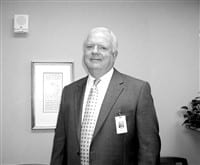On-the-money Analysis Consultants Help Health Care Providers To Think Outside Of The (Cash) Box
A hospital administrator closes the books after a long day of searching for ways to reduce costs and save the health system a few dollars. After hours of staring at a jumble of numbers, she is still coming up short.
It’s time, she decides, to bring in the experts.
The scenario reflects a new attitude toward working with consultants that is forming in the health care industry, in part due to the broadening scope of services within the field of health care consulting, particularly in the area of finance.
Called expense-management firms, these outside companies enter health care facilities to act as, essentially, a new pair of eyes that will examine everything from a hospital’s daily operations to its financial ledgers and billing practices. The ultimate goal is to save health care providers money through a variety of mechanisms, and the practice of utilizing outside firms to improve a facility’s financial picture is fast becoming a widely used and accepted one.
Locally, many health care providers have already recognized the potential benefits of such relationships.
“There is definitely less spontaneous use of outside firms in health care than ever before,” said Vince McCorkle, President and CEO of the Sisters of Providence Health System. “It’s very accepted and it can be very helpful. There is a very broad spectrum to work with in terms of what can be improved upon within a health system – there’s billing, staffing, coding … sometimes, we just need validation that we are, in fact, doing well in a particular area.”
Finding The Funds
Expense-management firms work in different ways and specialize in different areas; some work in a number of industries, others work only with health care providers. McCorkle said he looks at the companies as an added resource for the health system that can assist in navigating the increasingly choppy waters of health care financing.
“We’ve worked with outside companies extensively to assist in the many parts of our system,” he said. And it’s not always the same company; different firms have expertise in different areas. Since they are experts in a very specific area, it’s atypical that they won’t find something.”
And that is a boon for health care providers, who often find that the operating systems within their own facilities to be so varied and complex, that outside help becomes necessary to best improve practices.
“Some areas are so specialized that the internal expertise just isn’t there,” said Dennis Chalke, vice president for Finance and Health Care Operations at Baystate Medical Center. “Outside firms know those areas inside and out, and that’s how they help you.”
Some firms, like the Florida-based Hunter Group, work primarily with organizations that need a major turn-around, said Chalke. Others, like the Health Care Management Council in Needham, Mass., use a detailed process to analyze expenses and reformat an organization’s entire ledger, and also provide comparisons and networking opportunities with other providers, so different facilities can trade best practices.
Chalke added that there is no shortage of consulting firms available for health care providers – he said there is definitely a niche for such companies in the health care realm, and businesses are capitalizing on that.
“Some don’t get paid unless they find ways to save their client money,” said Chalke, and that is adding to the visibility of such firms as well as health care providers’ faith in them.
Twenty-five years ago, McCorkle added, hiring a ‘consultant’ conjured up visions of drastic staffing cuts and arbitrary subtractions from operating costs. For years, within many organizations, that stereotype remained. Now, with good faith business practices such as collecting payment only after a series of goals have been agreed upon with a health care provider (and subsequently accomplished) and more creative methods, health care consulting firms are seen in a much kinder light.
“We used to think of slash and burn stuff,” he said. “Now these firms seem much more concerned with continuous quality improvement.”
Eyes on the Prize
One such firm, VIE Healthcare based in Shrewsbury, N.J., works with hospitals, nursing homes, long-term care facilities, and physician practices to streamline operations and, above all, create substantial savings for all of their clients. To do that, VIE employs a number of methods, from analyzing the cost of all of a facility’s purchases, be it a suture set or a security system, to facilitating employee workshops that draw from the knowledge of every staff member.
VIE has been working with health care providers for seven years, with Lisa Miller, the company’s president and founder, at the helm. Miller, who has worked in health care for more than a decade, said her business was born out of the increasing opportunities she saw for health care providers to be more cost effective.
“Hospitals, particularly community hospitals, often need to find better pricing,” she said. “We’ve found that smaller hospitals are also the ones that are paying more money. In all cases, we try to look at areas that get overlooked.”
Miller agreed with McCorkle that the face of the financial consulting business is a fast changing one. She said there was a time when expense-management firms entered a hospital, opened the books, gave them a hard look, and then handed hospital administrators a binder with some suggestions that may or may not be implemented. She said VIE has tried to get as far away from that model as possible, in part to erase the old consultant stigma, but also because Miller and her staff have found that working more cohesively with an organization produces better results.
Miller said VIE implements a number of programs for health care providers, and works with each client on a case-by -case basis. “Each hospital is different; we might stay for six months or much longer. Some of our clients don’t want us to leave … we try to provide the appropriate amount of hand holding.”
She added that creative methods are always exhausted first before VIE suggests more traditional cuts to a provider’s finances.
“I’d say that 90{06cf2b9696b159f874511d23dbc893eb1ac83014175ed30550cfff22781411e5} of our methods are creative in nature,” said Miller. “Eventually, we have to drill down and reduce costs to some point, but we don’t want to hurt quality. We are focused on long-term process improvements.”
VIE facilitates, for instance, ‘reverse auctions’ online – Miller said the firm invites several vendors to post various items on a secure Web site, and health care providers then bid on surgical, office, and maintenance supplies within a three-day period. The difference from a regular online auction, though, is that the price doesn’t go up – it goes down. When the auction closes, the lowest bidders on each lot of supplies walk away with them.
“It’s surprising that you don’t see more of this,” said Miller. “Reverse auctions really show you how much you can save. We hope to be a leader in that area.”
VIE also holds EXCITE (Excellence in Creative Ideas within a Team Environment) workshops with provider employees, to get them thinking about what they would do to save a few dollars if they were the CEO.
Miller is particularly proud of the workshops. She calls them a great example of process improvement, and said typically, they are the most eye-opening aspect of the entire cost-shaving process.
“We get so much innovation and input from these employees,” she said, adding that the workshops have been part of VIE’s repertoire for two years, and one such workshop usually generates between 50 and 100 new ideas from staff. “The byproducts of the workshops are an increased focus on teamwork, and great morale. They really become part of the process, and typically within 30 days we’re seeing savings.
“Staff members know what works within their particular jobs,” Miller continued. “CEOs don’t know what type of floor cleaner costs less than others. The maintenance staff knows that. When they get a chance to share that, everyone benefits.”
VIE also keeps tabs on trends among their clients, in order to examine common areas for savings as one of the first steps in the consulting process. Miller said she always sees opportunities for savings in telecommunications, adding that telecom is also one of the most overlooked areas by hospitals. Utilities are also a big area for savings, as is shipping, and she recommends the standardization of basic medical items – from Band-Aids to bed sheets – to curb extraneous expenses.
Banking On It
Overall, the process of utilizing consulting firms to streamline expenses and operations seems to be morphing into a much more collaborative effort than ever before, and both expense-management firms and area he
lth care providers that work with them benefit from the relationship, especially in a time when many Massachusetts hospitals are operating in the red.
“We use these firms to help us, and we will continue to use them when necessary,” said McCorkle. “In the past, they have helped us to approach different processes in new ways, and given us tools to make different aspects of the health system work better. And, we always learn something.”


